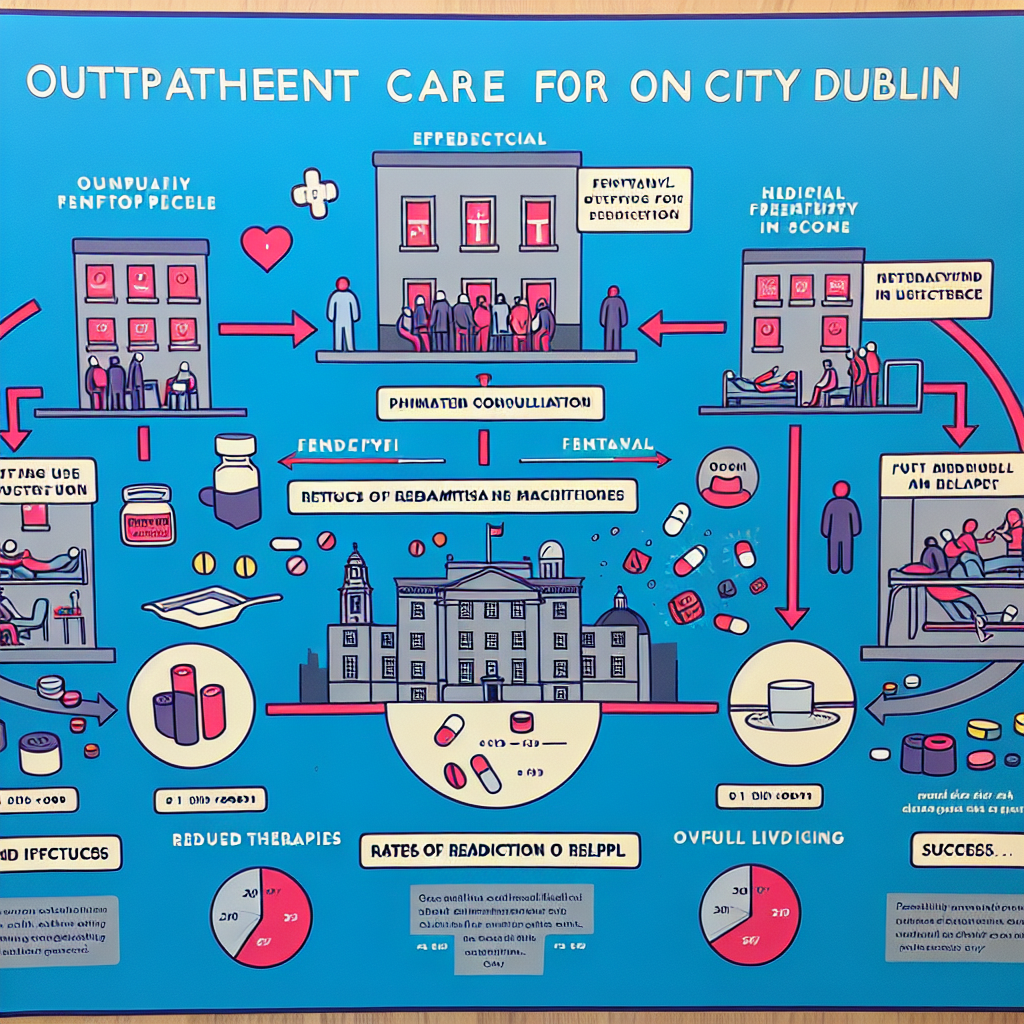-
Table of Contents

“Strength in Unity: Empowering Fentanyl Addiction Recovery Through Family Support”
Introduction
The Role of Family Support in Fentanyl Addiction Recovery
Fentanyl addiction, a severe and often life-threatening condition, has become a critical public health issue in recent years. As individuals grapple with the physical and psychological challenges of overcoming this potent opioid, the role of family support emerges as a pivotal element in the recovery process. Family members, through their emotional, psychological, and sometimes financial support, can significantly influence the trajectory of an individual’s journey to sobriety. Their involvement can provide a sense of stability, encouragement, and accountability, which are essential components in the multifaceted approach required for effective addiction treatment. This introduction explores the profound impact that family support can have on the recovery outcomes of those battling fentanyl addiction, highlighting the importance of a cohesive and supportive home environment in fostering long-term sobriety and well-being.
The Importance of Family Involvement in Fentanyl Addiction Recovery
The journey to recovery from fentanyl addiction is often fraught with challenges, but the involvement of family can play a pivotal role in overcoming these obstacles. Family support is not merely a supplementary aspect of the recovery process; it is a cornerstone that can significantly influence the outcome. When individuals battling fentanyl addiction have the unwavering support of their family, they are more likely to experience a successful and sustained recovery.
One of the primary reasons family involvement is so crucial is the emotional support it provides. Addiction can be an isolating experience, often leading individuals to feel alone and misunderstood. However, when family members actively participate in the recovery process, they offer a sense of belonging and understanding that can be incredibly comforting. This emotional support can help reduce feelings of isolation and provide the individual with a strong foundation upon which to build their recovery.
Moreover, family members can play an essential role in identifying and addressing the underlying issues that may have contributed to the addiction. Often, addiction is a symptom of deeper emotional or psychological problems. By working together, families can help uncover these root causes and support their loved one in seeking appropriate treatment. This collaborative approach can lead to more comprehensive and effective recovery strategies, ultimately increasing the chances of long-term success.
In addition to emotional support, families can also provide practical assistance that can make a significant difference in the recovery process. This might include helping with daily responsibilities, such as managing finances, attending medical appointments, or providing transportation to therapy sessions. By alleviating some of these practical burdens, family members enable the individual to focus more fully on their recovery journey.
Furthermore, family involvement can help create a stable and supportive home environment, which is essential for recovery. A safe and nurturing home can serve as a sanctuary where the individual feels secure and motivated to continue their efforts towards sobriety. Families can also establish healthy routines and boundaries that promote a drug-free lifestyle, reinforcing the importance of maintaining sobriety.
It is also important to recognize that family members themselves may need support and education to effectively assist their loved one. Addiction can take a toll on the entire family, leading to feelings of frustration, helplessness, and even resentment. By seeking out resources such as family therapy, support groups, and educational programs, families can gain a better understanding of addiction and learn how to provide the most effective support. This not only benefits the individual in recovery but also helps to heal and strengthen the family unit as a whole.
Inspiring stories of recovery often highlight the transformative power of family support. When families come together with compassion, understanding, and a commitment to helping their loved one, they can create an environment that fosters healing and growth. The road to recovery from fentanyl addiction is undoubtedly challenging, but with the steadfast support of family, individuals can find the strength and resilience needed to overcome their addiction and build a healthier, more fulfilling life.
In conclusion, the importance of family involvement in fentanyl addiction recovery cannot be overstated. Emotional support, practical assistance, a stable home environment, and access to educational resources all contribute to a more effective and enduring recovery process. By standing by their loved one and actively participating in their journey, families can make a profound difference, offering hope and inspiration to those striving to overcome addiction.
How Family Support Can Enhance Fentanyl Addiction Treatment Outcomes
Family support plays a crucial role in enhancing fentanyl addiction treatment outcomes, offering a foundation of emotional stability and practical assistance that can significantly influence the recovery process. When individuals battling fentanyl addiction receive unwavering support from their families, they are more likely to experience positive treatment outcomes and sustain long-term sobriety. This support can manifest in various forms, from emotional encouragement to active participation in treatment programs, and each aspect contributes to a more comprehensive and effective recovery journey.
One of the primary ways family support enhances treatment outcomes is through emotional encouragement. The journey to recovery from fentanyl addiction is often fraught with challenges, including withdrawal symptoms, cravings, and the psychological toll of overcoming dependency. During these times, the emotional backing of family members can provide a sense of hope and motivation. Knowing that loved ones believe in their ability to recover can empower individuals to persevere through difficult moments. This emotional reinforcement helps to build resilience, which is essential for navigating the ups and downs of the recovery process.
In addition to emotional support, families can play a pivotal role by actively participating in treatment programs. Many addiction treatment centers offer family therapy sessions, which are designed to address the dynamics within the family that may contribute to or hinder recovery. By engaging in these sessions, family members can gain a deeper understanding of addiction, learn effective communication strategies, and develop healthier ways to support their loved one. This collaborative approach not only strengthens the individual in recovery but also fosters a more supportive and understanding family environment.
Moreover, practical assistance from family members can alleviate some of the external pressures that individuals in recovery may face. For instance, family members can help manage daily responsibilities, such as childcare, household chores, or financial obligations, allowing the individual to focus more fully on their treatment. This practical support can reduce stress and create a more conducive environment for recovery. Additionally, families can assist in creating a structured and stable home environment, which is vital for individuals transitioning from treatment facilities back into everyday life.
Furthermore, family support can help in monitoring and preventing relapse. Relapse is a common challenge in addiction recovery, and having a vigilant and supportive family can make a significant difference. Family members can help identify early signs of relapse and encourage their loved one to seek help promptly. They can also participate in developing and implementing relapse prevention plans, which may include strategies for managing triggers, maintaining healthy routines, and accessing ongoing support services.
It is also important to recognize that family members themselves may need support and education to effectively assist their loved one. Addiction can take a toll on the entire family, and seeking guidance from support groups or counseling can equip family members with the tools they need to provide effective support. By taking care of their own well-being, family members can be more present and supportive throughout the recovery process.
In conclusion, the role of family support in fentanyl addiction recovery cannot be overstated. Emotional encouragement, active participation in treatment, practical assistance, and relapse prevention are all critical components that families can contribute to enhance treatment outcomes. By fostering a supportive and understanding environment, families can help their loved ones navigate the challenging path to recovery and build a foundation for lasting sobriety. The journey may be arduous, but with the steadfast support of family, individuals battling fentanyl addiction can find the strength and resilience needed to reclaim their lives.
Q&A
1. How does family support impact the recovery process for individuals addicted to fentanyl?
Family support can significantly enhance the recovery process for individuals addicted to fentanyl by providing emotional stability, encouragement, and a sense of accountability. It can also help in creating a structured environment that reduces the risk of relapse.
2. What specific actions can family members take to support a loved one recovering from fentanyl addiction?
Family members can support a loved one recovering from fentanyl addiction by participating in family therapy sessions, educating themselves about addiction, setting healthy boundaries, and encouraging adherence to treatment plans and support group meetings.
Conclusion
Family support plays a crucial role in fentanyl addiction recovery by providing emotional stability, fostering a sense of belonging, and encouraging adherence to treatment plans. Families can help create a supportive environment that reduces the risk of relapse, offers accountability, and promotes healthy lifestyle changes. Their involvement can also facilitate better communication with healthcare providers and ensure that the individual has access to necessary resources. Overall, family support significantly enhances the chances of successful recovery and long-term sobriety.



